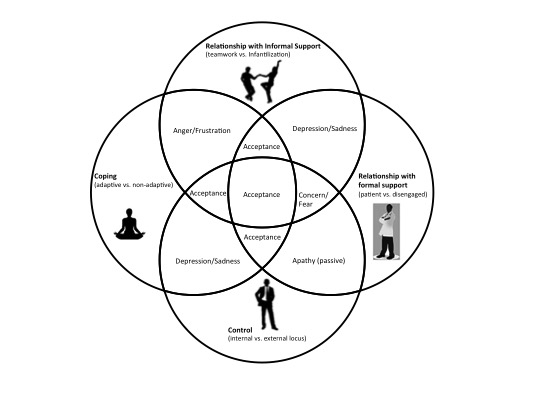A recent study published in The Gerontologist says understanding the emotional reactions of individuals diagnosed with Mild Cognitive Impairment (MCI) and Alzheimer’s disease (AD) will provide health care professionals with important information needed to develop suitable treatments.
Emory researchers developed a model, the Socio-Emotional Adaptation Theory, based on emotional reactions of individuals diagnosed with MCI and AD, which shows combinations of complex interactions and accompanying emotions. The model consists of four positive and negative contextual domains, including relationship with informal support partner (spouse or loved one), relationship with formal support partner (clinicians), locus of control, and coping mechanisms. By looking at areas of overlap, based on positive or negative contexts, researchers suggest it is possible to better understand the root cause of the emotions.
“If we can look at a person’s connection with those around them along with emotions they experience, which are complex and do not present linearly, then clinicians will be better able to provide treatment, particularly for patients in later stages of AD who have difficulty explaining their emotional needs,” says Sean N. Halpin, MA, lead author of the study and manager of research projects in geriatrics in the Emory University School of Medicine.
Halpin notes this is an initial effort to develop a cohesive model of the emotional changes experienced by patients with MCI/AD and to encourage health care practitioners to engage these patients as active partners in the process of fully understanding their disease.
This study was supported by the Atlanta Regional Geriatric Education Center-Alzheimer’s Disease Training Supplement, Health Resources and Services Administration Award #UB4HP19215.

